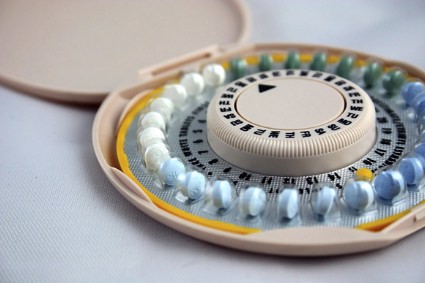User login
The question of whether organizations with religious ties should have to implement the Affordable Care Act’s mandate to cover contraceptives is once again before the Supreme Court.
On Dec. 31, Supreme Court Justice Sonia Sotomayor granted a stay to the Little Sisters of the Poor Home for the Aged in Denver, allowing them to temporarily avoid implementing the law’s contraception mandate. The nonprofit nursing homes sought relief from the Supreme Court, stating in court papers that complying with the mandate would violate their religious beliefs.
The organization would also like the Supreme Court to consider their objections to the mandate at the same time that it hears another related case, Hobby Lobby Stores, Inc. v. Sebelius.
But on Jan. 3, U.S. Solicitor General Donald B. Verrilli Jr., urged the Supreme Court not to take on the new case or provide the emergency injunction. Mr. Verrilli argued that the nursing home organization did not require any judicial relief from the law because it was eligible for a special "accommodation" for certain religious employers.
Under federal regulations, Little Sisters of the Poor Home for the Aged only has to self-certify that it is a nonprofit religious organization with objections to providing contraception services and then provide that documentation to the third-party administrator of their self-insured health plan, according to the Solicitor General. The organization will not need to pay for or arrange for the coverage, he said. And, in this specific case, the third-party administrator also will not provide the coverage to the organization’s employees, he argued.
The Supreme Court is expected to hear argument in the Hobby Lobby case later this year.
The question of whether organizations with religious ties should have to implement the Affordable Care Act’s mandate to cover contraceptives is once again before the Supreme Court.
On Dec. 31, Supreme Court Justice Sonia Sotomayor granted a stay to the Little Sisters of the Poor Home for the Aged in Denver, allowing them to temporarily avoid implementing the law’s contraception mandate. The nonprofit nursing homes sought relief from the Supreme Court, stating in court papers that complying with the mandate would violate their religious beliefs.
The organization would also like the Supreme Court to consider their objections to the mandate at the same time that it hears another related case, Hobby Lobby Stores, Inc. v. Sebelius.
But on Jan. 3, U.S. Solicitor General Donald B. Verrilli Jr., urged the Supreme Court not to take on the new case or provide the emergency injunction. Mr. Verrilli argued that the nursing home organization did not require any judicial relief from the law because it was eligible for a special "accommodation" for certain religious employers.
Under federal regulations, Little Sisters of the Poor Home for the Aged only has to self-certify that it is a nonprofit religious organization with objections to providing contraception services and then provide that documentation to the third-party administrator of their self-insured health plan, according to the Solicitor General. The organization will not need to pay for or arrange for the coverage, he said. And, in this specific case, the third-party administrator also will not provide the coverage to the organization’s employees, he argued.
The Supreme Court is expected to hear argument in the Hobby Lobby case later this year.
The question of whether organizations with religious ties should have to implement the Affordable Care Act’s mandate to cover contraceptives is once again before the Supreme Court.
On Dec. 31, Supreme Court Justice Sonia Sotomayor granted a stay to the Little Sisters of the Poor Home for the Aged in Denver, allowing them to temporarily avoid implementing the law’s contraception mandate. The nonprofit nursing homes sought relief from the Supreme Court, stating in court papers that complying with the mandate would violate their religious beliefs.
The organization would also like the Supreme Court to consider their objections to the mandate at the same time that it hears another related case, Hobby Lobby Stores, Inc. v. Sebelius.
But on Jan. 3, U.S. Solicitor General Donald B. Verrilli Jr., urged the Supreme Court not to take on the new case or provide the emergency injunction. Mr. Verrilli argued that the nursing home organization did not require any judicial relief from the law because it was eligible for a special "accommodation" for certain religious employers.
Under federal regulations, Little Sisters of the Poor Home for the Aged only has to self-certify that it is a nonprofit religious organization with objections to providing contraception services and then provide that documentation to the third-party administrator of their self-insured health plan, according to the Solicitor General. The organization will not need to pay for or arrange for the coverage, he said. And, in this specific case, the third-party administrator also will not provide the coverage to the organization’s employees, he argued.
The Supreme Court is expected to hear argument in the Hobby Lobby case later this year.

